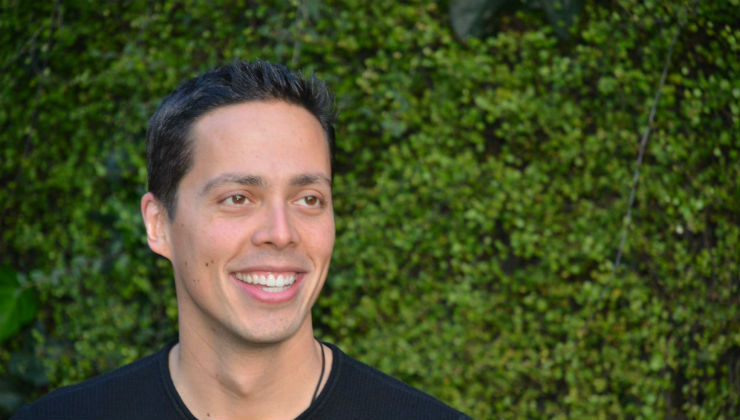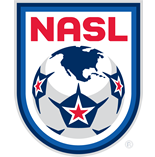Q&A With San Francisco Deltas CEO Brian Helmick

Photo credit: San Francisco Deltas
The San Francisco Deltas will be the first NASL club based on the West Coast, with the expansion side beginning play in 2017. The club’s CEO, Brian Helmick, spoke to Matthew Levine of NASL.com about opening the door for the NASL out west, the club’s philosophy, and more.
Levine: The team is going to play in San Francisco next year. Why do you think that’s the right city for the NASL?
Helmick: San Francisco is a wonderful city, it’s a diverse city – nearly 40 percent of the people that live in San Francisco were not born in the United States. It’s a city that has a rich soccer history, there’s tons of adult – men’s and women’s – and youth players in the community. There’s just a lot of excitement. We saw it the first game of Copa América here in the Bay Area. I feel it’s the right city because there’s a large and excited fan base clamoring to have its own professional team.
Levine: What has been the reaction of the San Francisco community and surrounding area as the Deltas become closer to becoming a reality?
Helmick: I feel blessed and humbled with the reaction of the community. I’m not sure if you saw the video when our stadium was approved at city hall. We had 1,500 people sending in letters of support over a two-week span, we had 200 people show up on a Thursday morning to city hall, and 50 people go up to the microphone. What’s touching to me every time that I watch the video is not the amount of support, but the diversity of support. It’s one of those moments you realize soccer is the world game and it can be incredibly unifying and exciting to people for a lot of different reasons.
Levine: Can you go into more details on the team name, the Deltas, and where the idea to use the name came from?
Helmick: So San Francisco is the city of change and innovation and delta means change so it’s a logical extension of that. The reality of where it came from was from talking to fans and listening to them and hearing that they wanted something simple, something that was easy to pronounce in many languages, something that was representative of the city and the fact we have this change mindset. It was a combination of listening to fans and putting all the different pieces together and putting something out there that would represent the city.
Levine: You mention San Francisco is the city of change and innovation and there are several investors who are based in tech companies in Silicon Valley, a hot bed for startups, so does that mindset trickle into the Deltas’ first season and beyond.
Helmick: No question. Our three pillars are: innovation, transparency, and community. Those are three pillars that I think are shared by not only this city from an identity perspective, but a lot of these startups as well. That will definitely influence our mindset, specifically on the innovation side. We want to find innovative ways on and off the field in terms of risk-loving, exciting style of play as well as not being afraid to make mistakes off the field using technology because we know we’re always trying to push the envelope and improve the experience.
Levine: Speaking of the ownership group, there’s also a heavy Brazilian influence. How will that impact player recruitment, coaching staff, playing style, if at all, as the team gets closer to stepping on the field?
Helmick: The Brazilian influence is recognizing that Brazil and Latin America, for that matter, has had a huge influence on the sport in terms of style of play and the fun, music, laughter aspect of the fan experience. We view this as a San Francisco-based team and we want to find best practices whether they are from Brazil or Spain, or the UK. It’s not going to be coming from one specific country, per se, but we want to make sure we’re thoughtful about best practices we can bring into a city as international as San Francisco.
Levine: The Deltas will be the first NASL club on the West Coast, so why do you think it’s the right club to be the first and how does it open the door for NASL opportunities on the West Coast?
Helmick: Why were we ready? Maybe ask the other owners who voted us in, but in my humble opinion it’s because I’ve lived here over 13 years and we took a very San Francisco-specific approach to the market. Now is the time from a natural level in terms of the awareness of the sport in the United States, but specifically in San Francisco where there is a lot of excitement among residents in San Francisco to have their own club, which is why I think the timing is right.
In terms of how that opens the door for other teams, I hope to set the bar very high both on and off the field for other West Coast expansion teams, so they look at us as an example on how to do things. I’m not saying we have all the right answers by any means, but we want to make sure we come in with a very professional mindset and long-term outlook.
Levine: What specifically about the NASL excites you?
Helmick: There’s a lot about the NASL that excites me. Two that immediately come to mind are possibility – the league provides the flexibility that allows each club to create an experience for fans and create an experience for the city that makes the most sense – and the global mindset. It’s nice to see our league have owners not just from the United States and Canada, but from Europe and Latin America. It’s a global game and it allows us to bring in best practices from all over as we create the league’s identity.
Levine: You touched on the stadium a little bit earlier. Kezar Stadium, where the club will play, has soccer history – one of which is the Golden Gate Gaels that played in the precursor to the NASL Legendary Era – so how important was it for the team to be playing in that venue? What can fans expect from a game-day experience?
Helmick: It was very important for a couple of reasons. We spent a lot of time speaking to fans and hearing what they wanted from their club. When we would ask them where the home stadium should be, a grand majority said it needs to be at Kezar Stadium. As you said there’s a lot of rich soccer history that happened there.
From a fan perspective, there’s a lot of things we’re trying to do to improve the infrastructure, but we also just hired two people from Super Bowl 50 to help on both operations and the fan-experience side.
Levine: As someone like yourself who has Colombian heritage, how important was soccer for you growing up and how has that led you to jumping into the opportunity with the Deltas?
Helmick: In Colombia there are two things as a young boy that are ingrained in you: love futból and you need to know how to dance. There’s a saying in Spanish if you don’t dance, you don’t reproduce.
The sport was a huge aspect of growing up, not only from a fun standpoint, but in my humble opinion it teaches you a lot of good values in terms of work ethic, teamwork, and discipline. It was something that in many ways I pinch myself now, it’s like a dream. I tell people I’m working 24 hours a day, but I’m never working just because it’s something that isn’t just a great business opportunity, but a great passion to make this a success.
Levine: What lessons can you take from recent expansion teams and how they’ve started and built their own teams?
Helmick: I like to say that God gave us two ears and one mouth for a reason, which is listen as twice as much as you talk. Listen to the fans because they will tell you what they want from their club. This is not my club, this is not the investors’ club, but this is the fans’ club. If we listen to them, they’ll tell us what they want and now we just need to be a steward of the club and fulfill their wants and desires.

